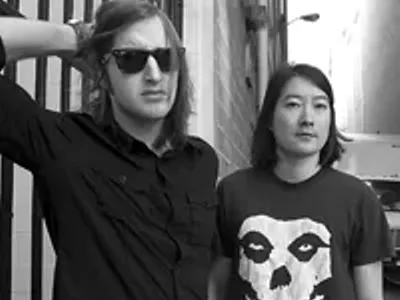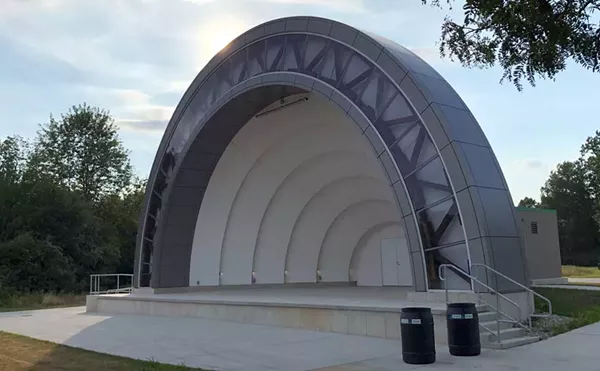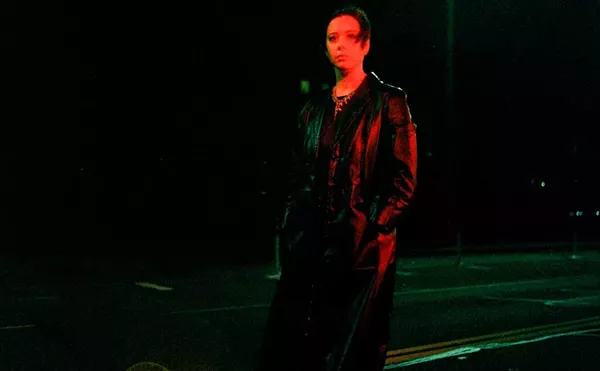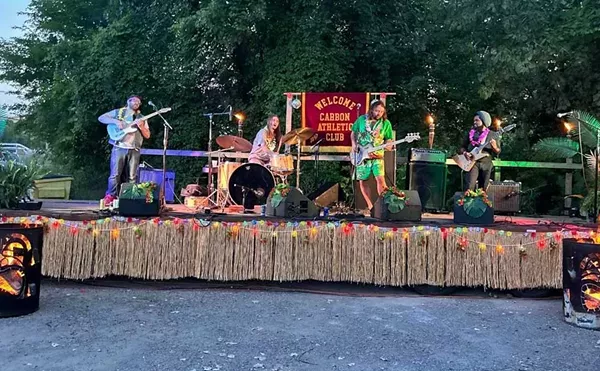
Audio By Carbonatix
[
{
"name": "GPT - Leaderboard - Inline - Content",
"component": "35519556",
"insertPoint": "5th",
"startingPoint": "3",
"requiredCountToDisplay": "3",
"maxInsertions": 100,
"adList": [
{
"adPreset": "LeaderboardInline"
}
]
}
]
Frederic Rzewski has this idea that the music world as we know it — dominated by recorded music and its industry — is but a blip in history. Someday, more enlightened types will look back at the 20th century and thereabouts as having "the strange idea that it was possible to freeze the music into a piece of plastic which you could then buy in a store." Someday, more enlightened types will realize how primitive the best recordings are "if we compare them to a simple page of music ... capable of a multiplicity of interpretations all of which can be equally interesting."
Rzewski is just one of the composers whose music will be played during the Detroit Symphony Orchestra's second "8 Days in June" series. He may not be right about the future, but the festival makes the case for the vitality of interpreting scores today — and the case for connecting that vitality with other approaches.
The festival strives to make classical warhorses sound timely — last year, for instance, by literally putting Beethoven's Fifth and Stravinsky's Rite of Spring in the context of the Napoleonic Wars and World War I, respectively, with a little narration — and to expand the repertoire typically heard in Orchestra Hall to the likes of Rzewski, Steve Reich and Philip Glass, not to mention bringing hip hop, jazz-inflected improv and computer-assisted music into the fold.
This year's fest kicks off Friday with commentary from host Tom Allen and the DSO conducted by Peter Oundjian in Mozart's "Jupiter Symphony" and Holst's "The Planets," followed by a 10:30 p.m. post-concert party with dumbek wizard Tony Bahu at Orchestra Hall. Meanwhile, also starting at 10:30 down the street at Museum of Contemporary Art Detroit, the group New Music Detroit tackles John Zorn's game-composition "Cobra" and music by Marc Mellitis. (Theme for the night: spiritual progression.)
The series finishes on Saturday, June 21, with the DSO doing Mendelssohn, Schnittke and Beethoven, as well as Stravinsky's "The Firebird." (Theme: chaos and order.)
Nights in between include the DSO performing Philip Glass to projected wildlife images of National Geographic photog Frans Lanting (Sunday, June 15, theme: changing earth); Flux Quartet and others performing Steve Reich, John Adams and Rzewski (Tuesday, June 17, theme: minimalism) and a performance by the Bill Frisell Quintet (Friday, June 20, theme: spontaneous creation).
One evening that looks particularly interesting is Monday, June 16, with the theme of technology. Composer-inventor Tod Machover's creations include software he calls Hyperscore, which allows folks with no formal training to create scores. Also on that program: Conlon Nancarrow's hand-crafted rolls for player piano (making music that often would be impossible for a human to execute) and computer-assisted compositions by artificial intelligence expert David Cope.
Hyperscore stations will be open to the public Monday and through the remainder of the festival, setting a new definition of what it means to bring music to the people.
At the Max M. Fisher Music Center (3711 Woodward Ave., Detroit; 313-576-5111). For complete schedule and more information see 8daysinjune.com





